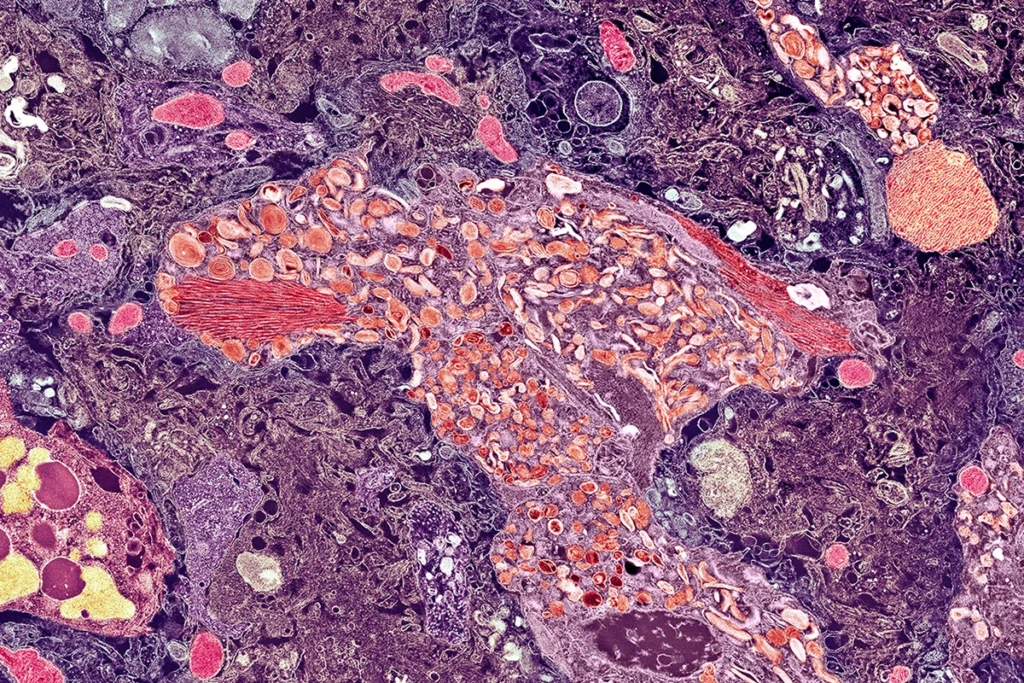Prions
Recent articles
Skeptics challenge claims of Alzheimer’s disease transmission via growth hormone
Some people who received cadaver-derived human growth hormone may not have Alzheimer’s as previously suggested, according to a new Perspective article.

Skeptics challenge claims of Alzheimer’s disease transmission via growth hormone
Some people who received cadaver-derived human growth hormone may not have Alzheimer’s as previously suggested, according to a new Perspective article.
Nobel Prize winner’s paper to be corrected, according to co-author
A data sleuth flagged an apparent duplicate image in the 2015 prion study led by neurologist and biochemist Stanley Prusiner.

Nobel Prize winner’s paper to be corrected, according to co-author
A data sleuth flagged an apparent duplicate image in the 2015 prion study led by neurologist and biochemist Stanley Prusiner.
Explore more from The Transmitter
Frameshift: Raphe Bernier followed his heart out of academia, then made his way back again
After a clinical research career, an interlude at Apple and four months in early retirement, Raphe Bernier found joy in teaching.

Frameshift: Raphe Bernier followed his heart out of academia, then made his way back again
After a clinical research career, an interlude at Apple and four months in early retirement, Raphe Bernier found joy in teaching.
Organoid study reveals shared brain pathways across autism-linked variants
The genetic variants initially affect brain development in unique ways, but over time they converge on common molecular pathways.

Organoid study reveals shared brain pathways across autism-linked variants
The genetic variants initially affect brain development in unique ways, but over time they converge on common molecular pathways.
Single gene sways caregiving circuits, behavior in male mice
Brain levels of the agouti gene determine whether African striped mice are doting fathers—or infanticidal ones.

Single gene sways caregiving circuits, behavior in male mice
Brain levels of the agouti gene determine whether African striped mice are doting fathers—or infanticidal ones.